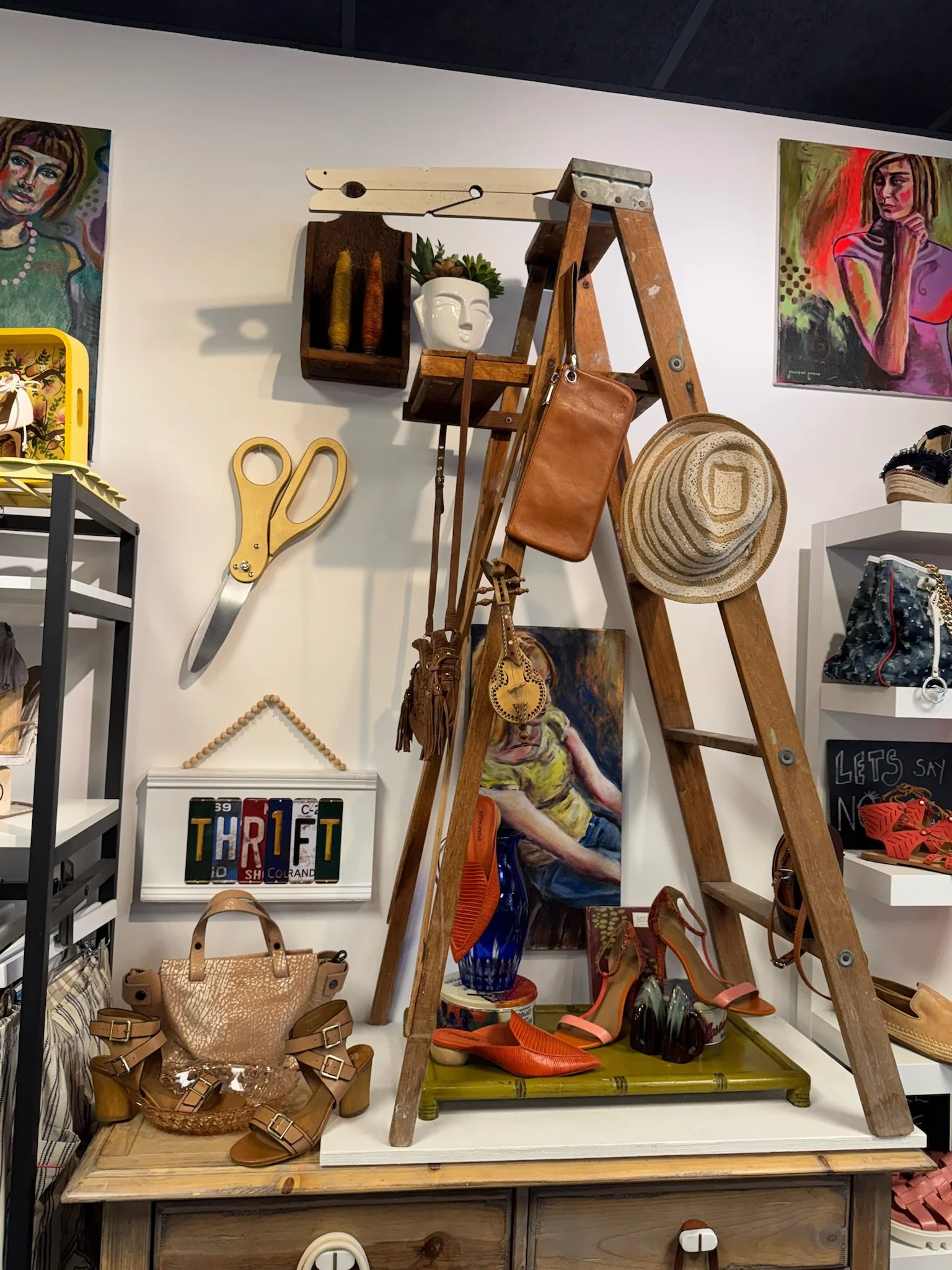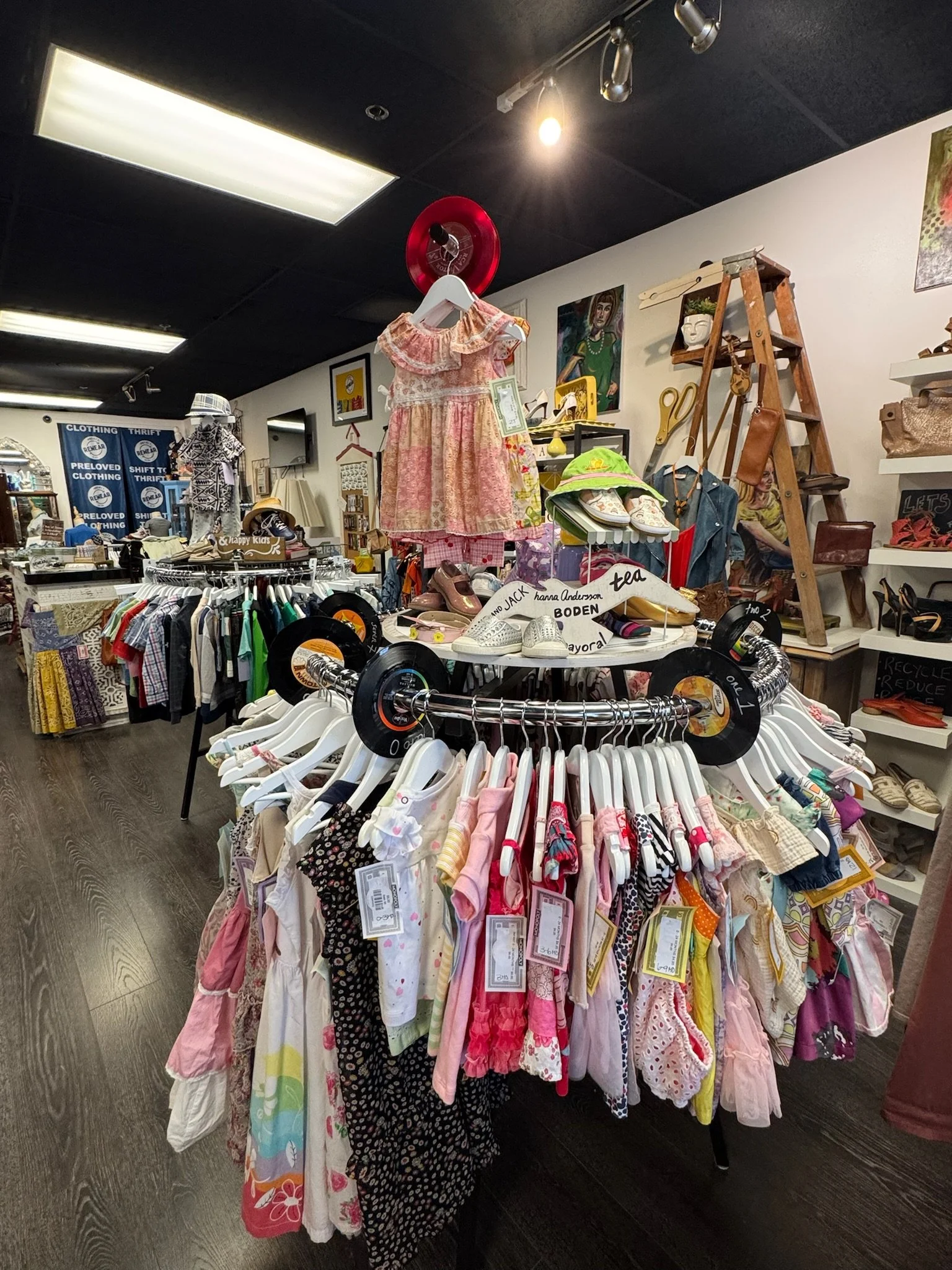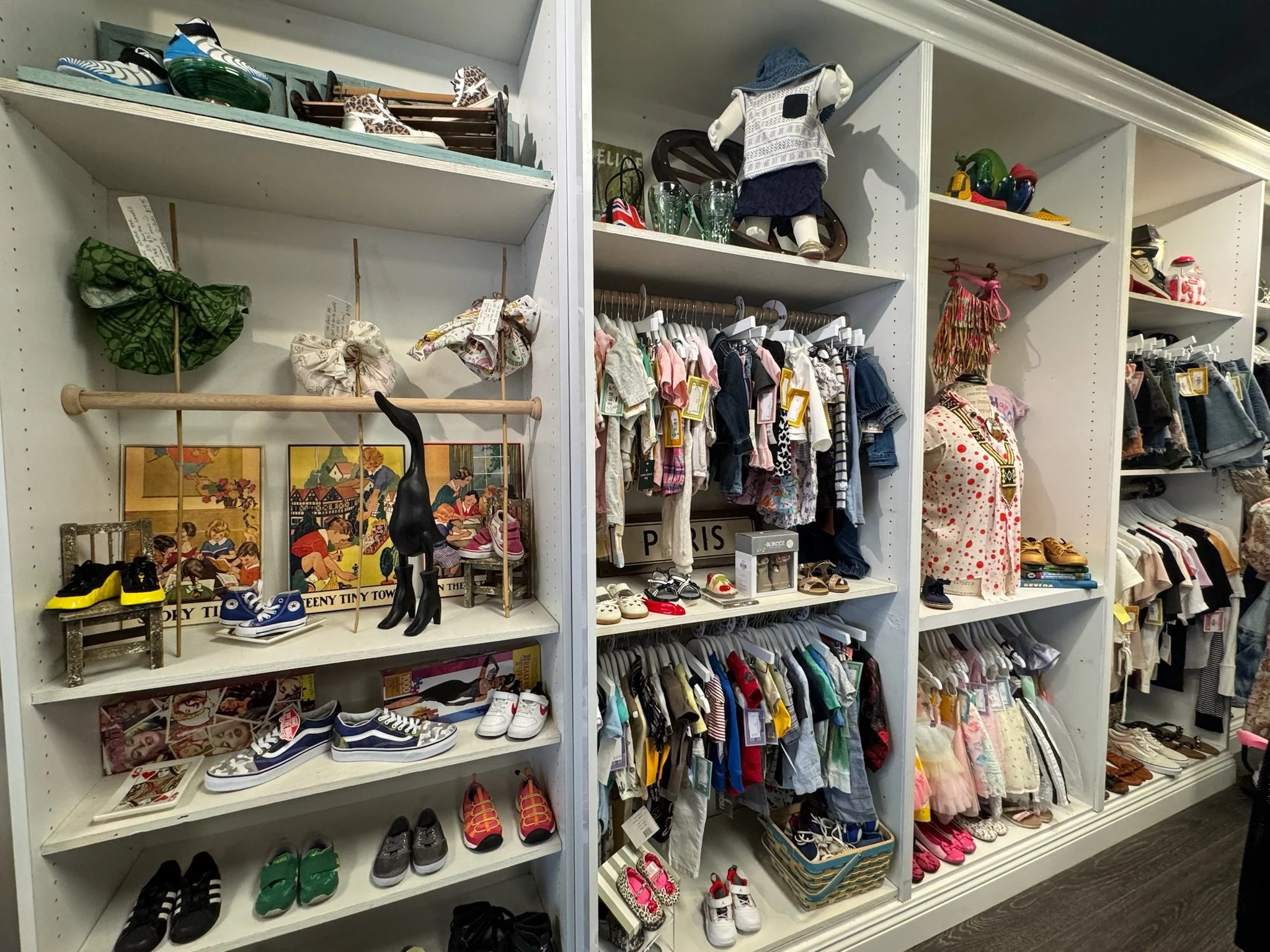THIS FEMALE FOUNDED COMPANY IS ASKING PEOPLE TO RETHINK CLOTHING WASTE - AND IT’S WORKING
By: Erica Commisso
In just over four months, Thousand Oaks, California-based Project ReWear has diverted more than 1,000 pounds of clothing from landfills through its preloved clothing initiative. And, according to its founders, Kimberly Lau and Linda Young, its just getting started.
Lau and Young met with equal parts chance, love of fashion, and desire to make the earth a better place. “I was in the early stages of purchasing high-quality secondhand clothing from thrift stores and shaping the idea that would eventually become Project ReWear,” Lau says. “One day, I wandered into The Mad Attic — the oldest nonprofit thrift store in the Conejo Valley — where Linda had been volunteering for years and was serving as Board President.”
Credit: Emily Perez, Project ReWear
“I happened to be working a shift that day and we struck up a conversation almost immediately,” Young says. “We realized we shared not just a passion for resale and sustainability, but a desire to build something with deeper impact. We’d both seen so much great clothing going to waste, and we knew there had to be a better way.”
The result was Project ReWear, their resale boutique that’s become a beacon in their community, a way to further their mission of reducing waste in fashion. Young, originally from Australia with extensive expertise in retail management and global branding, found herself volunteering at that California nonprofit where she’d meet Lau, who was the proverbial missing piece. Lau, who spent over two decades rising to the top of her firm in wealth management, had two boys and was going through a divorce, searching for what really mattered. And then they found each other and their shared values.
Credit: Emily Perez, Project ReWear
“We came across a stat that completely stopped us in our tracks — that every second, the equivalent of a garbage truck full of clothes is dumped into a landfill or burned,” Young says. “We saw it on Earth Day, and it haunted us.”
The Landfill Project is the latest initiative inside their Project ReWear boutique that aims to push back against that stat, and the pair of moms set a lofty goal for 2025: to save 8,000 pounds, or one truckload, of clothing from a landfill. Through the in-store initiative, the boutique tracks the exact pounds of waste saved when customers buy preloved goods. And, if they pose with the “garbage truck” display and snap a picture, they get 10% off their goodies.
With over 1,000 pounds that they have saved to date, Lau and Young aim to engage and educate the Thousand Oaks community. “Most people want to do the right thing — they just need the right information,” Young says. “So we designed the store to be part shopping experience, part educational resource. Every item is weighed at checkout, and customers can see in real time how many pounds they’ve helped keep out of landfills.”
Project ReWear allows visitors to see their impact in real time, to strengthen their community bonds. That idea, that sense of togetherness, is also the cornerstone of the store’s other initiative, The Community Rack, which allows visitors to take a piece of clothing and simply leave another in its place. And its already made a big impact.
Credit: Emily Perez, Project ReWear
“A mom came in to drop off a really cool kids’ coat — and at that exact moment, another mom walked in, took one look at the coat, and said, ‘My kid needs a coat exactly that size and color,’” Lau says. “They exchanged smiles — no money, just kindness. It was the perfect example of how this community shows up for each other.”
Naturally, such a powerful initiative has gotten community attention, both in Thousand Oaks and beyond. Expansion, for Lau and Young, takes on many forms, and they’re exploring growth through pop-ups, new locations, and community partnerships, among other ideas. But, at the end of the day, all they want to do is show people that their actions, small as they may seem, really do matter.
“For us, it’s about making sustainability visible, personal, and empowering,” Young says. “Every purchase is a small act of change — and every pound truly counts.”



